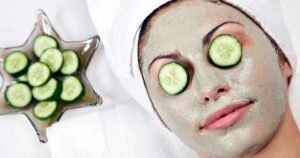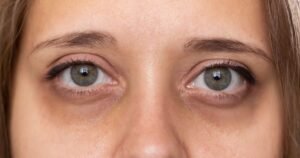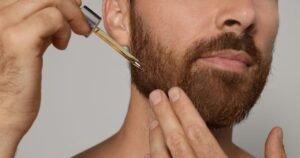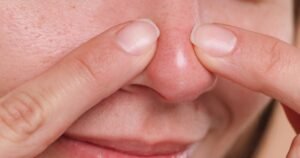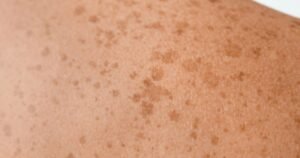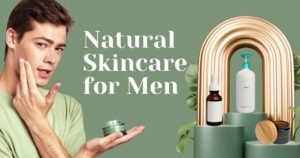Find Your Solution: 11 Best Hair Vitamins for Alopecia areata
Finding a bald patch can be stressful. Usually, the first thing we do is rush to buy hair supplements like Biotin or Zinc, hoping they will fix the problem quickly.
But here is the truth: Not all vitamins work for Alopecia Areata.
Since Alopecia is an autoimmune condition, regular hair loss pills might not be enough. You need specific nutrients that not only help hair grow but also calm your immune system. In this guide, we will look at the 11 best hair vitamins for alopecia areata, research-backed vitamins that can actually help your recovery.
What is Alopecia Areata?

The immune system attacks hair cells because of a condition called alopecia areata (pronounced al-o-pee-SEE-uh air-uh-TAH). The attack damaged the regular cycle of hair growth, which caused patchy hair loss. Here is an overview of the major concepts:
Autoimmune disease. The body’s immune system, which generally fights off diseases, attacks the hair follicles by chance in alopecia areata, which causes inflammation and hair loss [1].
Patchy hair loss. Loss of hair can occur anywhere on the body, like in the beard, eyebrows, eyelashes, but the most common sign is one or more smooth, circular bald spots on the head [1].
Not predictable. The severity and development of alopecia areata are hard to predict. Loss of hair may develop suddenly or slowly, affecting a large area. In certain cases, hair grows back on its own, but it’s also possible that hair loss can spread.
Here are some additional details about Alopecia areata:
Anyone can develop it. Alopecia areata is a condition that can affect individuals of any age, gender, and ethnicity [1].
Lifetime Risk. In the general population, there is a 2% chance of getting alopecia areata at a certain point in their lives [1].
Prevalence. This means that about 1 in 1,000 people have this condition.
Global Impact. Alopecia areata affects about 160 million people around the world, or they have had it at some point in their lives. According to this, about 6.7 million people in the United States currently have or have had alopecia areata [1].
Age of Onset. People of any age can get alopecia areata at any age, but in most cases, over 80% of people who have it show symptoms before they reach 40, and a significant portion of the population (40%) has experienced symptoms by age 20 [1].
Learn what vitamins are?
Organic molecules called vitamins are necessary for human health but the body cannot produce enough of them on its own. They are very important for many body processes, such as:
Energy production. Some vitamins help our bodies transform the food we eat into energy because our cells can use them.
Metabolism. Vitamins play a role in many metabolic processes, like breaking down proteins, fats, and carbohydrates.
Repair and growth of cells. Vitamins are important for keeping cells in the body healthy and helping them grow.
Immune system function. Some vitamins make it easier for the immune system to fight off infections and diseases.
Nervous system function. For nerves to work right and send messages, they need certain vitamins.
Also Read:
Best 12 Natural Home Remedies for Alopecia Areata – SWH
Are vitamins really important for hair growth?
Vitamins play a role on multiple levels to keep your hair healthy, from maintaining that the hair’s follicles work properly to improving the hair’s general strength and look. Take a closer look at how vitamins help hair grow in a healthy way:
Building blocks of hair. A protein known as keratin is the primary component of hair. The production of keratin is promoted by certain B vitamins, such as biotin, pantothenic acid, and vitamin B12.
Additionally, these B vitamins work as coenzymes in metabolic processes that transform amino acids, which are the building blocks of protein, into keratin.
Nutrient delivery to hair follicles. Hair follicles need a steady supply of nutrients and oxygen to work correctly and grow healthy hair.
Certain vitamins, such as vitamin D, vitamin E, and B vitamins, help the blood circulation. Blood flow is important for hair growth because it makes sure that the hair cells get the nutrients they need.
Antioxidant Defense. Free radicals are chemicals that are unstable and are produced by the body and factors in the environment, like UV rays. It’s possible for them to damage the hair follicle cells and stop hair growth.
Vitamins C and E, which are antioxidants, help fight free radicals and keep hair cells safe from oxidative stress.
Scalp health and immunity. For good hair development, you need a healthy scalp. Vitamin A helps produce sebum, which keeps the skin hydrated and stops it from drying out.
B vitamins, like riboflavin and niacin, help keep the hair healthy by speeding up the regrowth of skin cells and reducing inflammation.
Also, vitamin C is important for a strong immune system and can indirectly enhance hair health by defending against disorders that can damage the scalp and hair cells.
“I take these vitamins that make my hair grow like crazy. They’re called Herpanacine, and I get them on Amazon – they’ve got echinacea and vitamins A and E. They’re really good for your immune system, too. You don’t get sick, and they really help your skin, hair, and nails.”
— Trinny Woodall
Top 5 Essential Vitamins for Alopecia
🛑 Important note. Before taking any vitamins, you should talk to your doctor, especially if you already have a health issue or are taking medicine.
If you are in a hurry, here is a quick summary of the top 5 most critical nutrients your hair needs right now:
| Vitamin/Mineral | Why It’s Important for Alopecia? | Best Natural Source |
|---|---|---|
| Vitamin D | Most Alopecia patients have low Vitamin D levels. It helps wake up inactive hair follicles. | Fatty Fish, Egg Yolks |
| Biotin (B7) | Strengthens the keratin structure of hair strands (good for regrowth quality). | Eggs, Almonds, Sweet Potatoes |
| Omega-3 | Reduces scalp inflammation caused by the autoimmune attack. | Fatty fish (salmon, mackerel, herring), flaxseeds, chia seeds, walnuts |
| Iron (Ferritin) | Carries oxygen to hair roots. Low iron can trigger more hair loss. | Spinach, Red Meat, Lentils |
| Zinc | Helps calm the immune system and reduces hair follicle loss. | Pumpkin Seeds, Chickpeas, lamb, beans, |
This was just a quick overview of the essentials. But to see real results, you need to understand the complete list. Below, we have detailed all 11 vitamins (5 essential and 6 supportive), including how they work and the best natural sources for each.
11 Best Hair Vitamins for Alopecia Areata
There is not a specific “best” hair vitamin for alopecia areata, but there are several vitamins and supplements that are believed to help hair maintain health and may possibly reduce the symptoms of alopecia areata. This list of 11 vitamins and supplements is for you:
1. Vitamin D
Vitamin D is believed to help hair grow and keep the immune system in balance. Some studies show that not getting enough vitamin D may be linked to autoimmune diseases like alopecia areata [2].
However, research into the exact link between vitamin D and alopecia areata is ongoing, and results are unclear at this time.
Some studies have shown that vitamin D levels may be lower in alopecia areata patients compared to those without the condition [2].
Also, for some people with alopecia areata, especially those who have low vitamin D levels, taking vitamin D supplements may help their hair come back [2].
Food sources: Fatty fish (salmon, sardines, mackerel), egg yolks, mushrooms.
2. Biotin
Biotin, also known as vitamin B7 or vitamin H, is a water-soluble vitamin that is often associated with promoting healthy hair, skin, and nails. Biotin is involved in keratin production, a key component of hair.
A study from 2016 suggests that 38% of the biotin deficiency was found in 541 female participants who experienced hair loss [4].
While research on the effectiveness of biotin specifically for treating alopecia areata is limited, some people with alopecia areata who have a deficiency of biotin may benefit from biotin supplementation [5].
Food sources: Eggs, almonds, walnuts, sunflower seeds, avocados, sweet potatoes, salmon.
Note → You can also take biotin or vitamin B complex in the form of capsules, which are available in pharmacies and online.
“I take hair growth, natural vitamins and sleep on silk pillow cases.”
— Devon Windsor
3. Omega-3 Fatty Acids
Although omega-3 fatty acids are not vitamins, they are fatty acids that are important for hair growth.
The link between a deficiency of omega-3 fatty acids and hair loss has not been found yet, but research shows that this may help hair grow effectively [7].
A study of 120 healthy women showed that supplements containing omega-3 and omega-6 fatty acids and antioxidants not only reduced hair loss but also boosted hair density [7].
Food Sources: Fatty fish (salmon, mackerel, herring), flaxseeds, chia seeds, walnuts.
4. Iron
According to some research, anemia, or iron deficiency, has been linked to alopecia areata and other types of hair loss. Lack of iron levels in the body can have an effect on the hair development cycle, causing thinning or loss of the hair [8].
Also, oxidative stress and inflammation are two more diseases that may make alopecia areata worse and are associated with iron deficiency [9].
While there is need for more research to understand the link between iron deficiency and hair loss.
A doctor can check your iron levels and, if necessary, suggest changes to your diet or supplements if you’re worried about an iron deficiency.
Food Sources: Red meat (beef, liver), poultry, dark leafy green vegetables (spinach, kale), lentils, beans, tofu.
5. Zinc
Zinc is a mineral that is essential for good hair growth and is involved in many biochemical processes. It is very important for protein development, especially for making keratin, which is the main structural protein in hair.
A deficiency of zinc has been linked to different types of hair loss, such as alopecia areata, according to research [10-2-3-9].
Food Sources: Dark leafy green vegetables (spinach, kale), lentils, yogurt, rass-fed beef, lamb, beans, tofu, pumpkin seeds, chickpeas, cashews.
Also Read:
The Best Diet for Alopecia Areata: What to Eat and Avoid
6. Vitamin E
Oxidative stress can damage cells, including those in the hair follicles. Vitamin E is an important nutrient with antioxidant properties that helps protect cells from this damage [2].
Some studies show potential, but more research is needed to find out for sure if taking vitamin E supplements can help with alopecia areata.
If you take medicines that thin your blood, taking vitamin E over-supplementation can increase the risk of bleeding and decrease thyroid hormone production [3].
Talk to your doctor before taking vitamin E supplements, especially if you have a condition that makes you bleed easily or take medicines that thin your blood.
Food Sources: Almonds, sunflower seeds, wheat germ, peanuts, spinach, broccoli, extra virgin olive oil.
Note → Vitamin E supplements are also available online for purchase.
7. Vitamin A
Vitamin A is a fat-soluble vitamin that stays in the skin and hair follicles to keep them healthy. Vitamin A helps keep the sebaceous glands in your hair from producing sebum, which is an oily substance.
For healthy skin and scalp, vitamin A is important. However, research suggests that taking too much vitamin A can be harmful for you and cause hair loss [3].
Besides, a study shows that hair loss acts as a side effect for some patients who take vitamin A products like retinoids to treat acne and other skin conditions [6].
Food sources: Carrots, sweet potatoes, cantaloupe, spinach, kale, broccoli, milk, cheese.
Note → Vitamin A supplements are also available online for purchase.
8. Vitamin C
Vitamin C, which is also called ascorbic acid, is a water-soluble vitamin that is very important for several body functions, such as producing collagen, protecting cells from damage, and keeping the immune system healthy.
However, there isn’t yet strong scientific proof that vitamin C supplementation is directly linked to improved hair growth in people with alopecia areata.
But some studies show that vitamin C can help the body absorb iron from food. Hair loss is believed to be caused by not getting enough iron. Vitamin C may help the body absorb iron better and promote healthy hair growth [9].
Food Sources: Citrus fruits (oranges, grapefruits, lemons, limes), cabbages, papaya, pineapple, green peppers, potatoes, tomatoes, broccoli.
“Drink lots of water, get lots of sleep, and take vitamin C!”
— Georgia May Jagger
9. Folic Acid
Folic acid, which is also called vitamin B9 or folate, is a water-soluble vitamin that is very important for making DNA, dividing cells, and the formation of red blood cells.
In an Iranian study, people with alopecia areata had lower levels of folate compared to people who were not affected by the disease [2].
However, this doesn’t show definitively that taking folic acid supplements will help hair grow in all cases.
There needs to be more research on the link between folic acid deficiency and alopecia areata.
Food Sources: Kale, oranges, strawberries, collard greens, swiss chard, beets, eggs, white neans, legumes.
10. Selenium
Selenium is an important mineral that your body needs, and that helps as an antioxidant protect cells from damage caused by free radicals.
Although there isn’t a confirmed study on selenium as a treatment for alopecia areata yet, it is believed to help with hair growth overall and might offer some benefits for people with this disease.
Food Sources: Brazil nuts, fish (shellfish, fish, sardines), poultry (chicken, turkey), whole grains (brown rice, oats), eggs.
11. Magnesium
As a vital mineral, magnesium is very important for many bodily functions, such as nerve transmission, muscular contraction, and protein synthesis.
According to the researchers, there may be a link between the patients’ lower magnesium levels and having a skin disease in general rather than directly related alopecia areata itself [11].
This study suggests a potential link between low magnesium levels and alopecia areata or other skin diseases, but it doesn’t definitely show that low magnesium levels cause hair loss.
However, we need to research more studies to fully understand how magnesium affects hair growth.
Food Sources: Nuts (almonds, cashews), seeds (pumpkin, sunflower), leafy greens (spinach, kale), whole grains (brown rice, quinoa), legumes (beans, lentils).
Conclusion
It can be hard to deal with alopecia areata, but the right vitamins can help and provide promising relief for alopecia areata.
Remember that every individual’s reaction may be different, and it’s always a good idea to talk to a doctor before making major changes to your eating routine or supplement routine.
To provide your body with the essential nutrients it needs, you need to eat a healthy, well-balanced diet.
Sources:
1. National Alopecia Areata Foundation | NAAF
2. The Role of Vitamins and Minerals in Hair Loss: A Review
3. Diet and hair loss: effects of nutrient deficiency and supplement use
4. Serum Biotin Levels in Women Complaining of Hair Loss
5. A Review of the Use of Biotin for Hair Loss
7. Effect of a nutritional supplement on hair loss in women
8. The diagnosis and treatment of iron deficiency and its potential relationship to hair loss
9. The role of micronutrients in alopecia areata: A Review
10. Evaluation of serum zinc level in patients with newly diagnosed and resistant alopecia areata
11. Magnesium content of the hair in alopecia areata atopica
“Disclaimer: The information presented in this article is for educational purposes only and does not constitute medical advice. Dietary changes can impact individuals differently. Please consult a dermatologist or nutritionist before starting any new diet plan for Alopecia Areata.”


